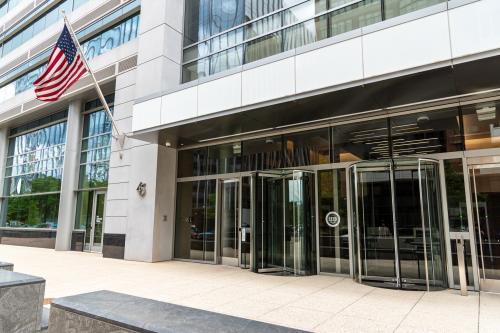This summer, a popular water cooler topic in the policy and technology communities is something called the Privacy Paradox. Recently, EMC Corporation, a leading enterprise cloud-based services company, released its inaugural EMC Privacy Index. This study was commissioned by the company to better understand consumer perceptions about the need to protect personal privacy online and how that ranks as a consumer priority against the benefits of convenient online commerce and social media sharing, alongside other priorities such as the use of data analytics to prevent terrorist attacks and protect national security. Its data reflects survey responses from 15,000 consumers in 15 countries, including the United States.
Having reviewed the data in detail, I was particularly intrigued by what is termed the “We Want It All” Paradox. The vast majority of respondents in all surveyed countries (91 percent) indicated they value the benefit of “easier access to information and knowledge” that digital technology affords. Yet 81 percent also expected privacy to erode over the next five years, and 59 percent said they have less privacy than a year ago. Less than half of all respondents (45 percent) also indicated they were willing to trade some of their privacy for easier access.
All the Benefits with None of the Costs
This means that people worldwide are using technology at a high rate, and place considerable value on the benefits offered by digital technology, yet far fewer say they are willing to give up ANY of their privacy in exchange for the ability to keep receiving these benefits. This paradox applies not only to everyday consumer benefits, such as searching for nearby shops by enabling geo-location, but to more critical benefits to citizens such as protection from terrorism and/or criminal activity.
Government policymakers in the US and elsewhere are likely to find themselves between the proverbial rock and a hard place. Similar to another current paradox on Capitol Hill– the movement to reduce government spending but wanting to do so without cutting large entitlement programs–it presents a difficult policy and political challenge. How should the right balance be achieved between a seemingly insatiable demand for more widespread online access and a growing anxiety that this access is a primary cause for the erosion of personal privacy?
A Potential Opportunity for Entrepreneurs
The Privacy Paradox also presents opportunities in a two-sided market that might help develop acceptable long-term policy prescriptions. On one side are companies that are providing new services that are in high demand for the beneficial online access they offer (e.g., mobile apps). The other side is a largely untapped market offering various types and levels of privacy protection that appeal to those who would prefer paying for such protection as a form of insurance from unwanted digital intrusion. This latter group should be very attractive market for technology entrepreneurs who can develop workable, cost-effective solutions that help ensure continuing innovation on the supply side while responding to the demand side, so that the masses who proclaim “We Want It All” can be satisfied more rationally.
With sufficient time to let this two-sided market develop, and with updated survey data to determine how it changes consumer attitude metrics, policymakers will be in a better position to reconcile the Privacy Paradox through tailored legislative and regulatory approaches that the marketplace is not providing sufficiently.
The Brookings Institution is committed to quality, independence, and impact.
We are supported by a diverse array of funders. In line with our values and policies, each Brookings publication represents the sole views of its author(s).



Commentary
Grappling with the Privacy Paradox
July 8, 2014